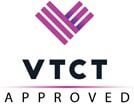Work Placement Information Guide
Thank you for considering the opportunity to become a partner in the Solihull College & University Centre and Stratford-upon-Avon College Work Placement Programme.
Employability is a key priority for us and with your help, our students will leave us with not only with the academic or vocational qualifications they need, but also the skills required for the workplace.
Our aim this year is very much like that of the last; to establish the programme throughout the Midlands and Warwickshire, developing a mutually-beneficial relationship that not only benefits our learners, but also your organisation and its employees.
This guide will help you to get the most from the Work Placement programme and help you make sure that our student progresses as much as they can while participating.
We’d like to take this opportunity to thank those businesses that have kindly hosted or offered to host placements for our learners in previous years and we hope to be back in touch soon!
The Work Placement Plan
Work Placement ventures have already proven to be beneficial across the UK and when a survey was conducted by the Department for Education in 2017, the results found that…
- 72% of employers used work placements as a trial for the further recruitment of apprentices;
Employ An Apprentice - 73% of employers say it helps fulfil their ‘corporate social responsibility’;
- 83% of employers enjoyed more community involvement;
- 86% of students had a clearer sense of their career aspirations;
- 93% of students improved their employability skills;
- 93% of students acquired a better understanding of the world of work and industry.
Can you offer a work placement to one of our students?
Please complete the following form.
Work Experience (30 hours*)
As part of their full-time course, all learners aged 16 to 19 are required to obtain Work Experience. Traditionally, a student would complete a 1 to 2 week block, or 10 days on a day-release basis; although, Work Experience can also include completing a project on behalf of an employer. Masterclasses / workshops, guest talks and workplace visits can also contribute towards the employability skills, which learners need to develop.
(T-Level) Industry Placements (315 hours / 45 days*)
Industry Placements are a mandatory element of the new employer-designed ‘T-Level’ qualifications; a 2 year technical and vocational alternative to A-Levels. Industry Placements are an extended period of Work Experience for learners aged 16 to 18, but the role must be directly linked to the learner’s course, with job-related objectives and reviews agreed in advance with the employer, student and college coordinator.
Please note, our full-time students studying programmes in Animal Care, Childcare & Early Years and Health & Social Care are required to complete up to 385 hours as part of their course, which can be considered as either Work Experience, or an Industry Placement – these are exceptions.
Supported Internships (6 months*)
Supported Internships offer people aged 16 to 24 with learning disabilities and difficulties (LDD), with an Education, Health & Care Plan (EHCP) from the local authority, the opportunity to gain a practical, work-based learning experience. Tailored to the individual needs of each young person to ensure that their skills are developed with their career aspirations in mind, these internships provide a smooth transition from education into paid employment.
* Minimum duration per aunnum.
‘Extended work placements contribute to the development of a student’s specific technical knowledge and skills, whilst also building their general work-readiness.’
Gatsby Report 2017.
Benefits for Businesses
- For every company taking part, the scheme will act as a source of additional support, helping to provide both new and creative perspectives.
- The scheme will further raise your company’s profile and display a positive contribution towards the development of the region’s future workforce.
- Using a mentoring or ‘buddy’ system will assist you in identifying prospective supervisors and line managers from your current personnel.
- Our work placement team will pre-screen applicants, referring a shortlist of candidates that are ready for interview.
- Cost-effective recruitment opportunities will emerge from a talent pool of students. With your support and encouragement, you will be able to select the students that display the most potential for employment and build a succession plan for your organisation.
Benefits for Students
Work Placements can increase employment potential and help learners begin to develop new abilities, such as:
- Successfully understanding and completing application forms.
- Improving interview technique and utilising constructive feedback.
- Gaining confidence and improving their communication and interpersonal skills.
- Building upon attributes such as punctuality, reliability, enthusiasm and resourcefulness.
- Acquiring experience of personal coaching and mentoring from sector professionals.
- Establishing an understanding of different occupational roles and their performance.
- Increasing the depth of their CV and self-promotion for future employment.
- Making informed decisions about their future.
To arrange a meeting to discuss our programme areas and the best Work Placement option(s) for your organisation, please contact our dedicated Employer Services Team on:
0121 678 7181
Meeting between the employer and work placement coordinator to discuss opportunities.
Employer wishes to present opportunity – Risk assessment(s) performed by the college & signed.
Placement or project description advertised on the college’s student homepage
Student applications are submitted and a shortlist of candidates will be provided for the employer’s consideration.
Placement(s) offered by the employer and the start date, end date and number of hours are set.
College calls / visits to support and perform mid and end point reviews
Placement(s) complete! Employer and student(s) feedback collected and certificates awarded
What about insurance?
No supplementary fees or administration are necessary when insuring students in the workplace; the company’s Employers’ Liability Insurance will include all volunteers. This is the only requirement.
What about health & safety?
Students will comply with the employer’s health & safety policy during their work placement and the college will complete a short risk assessment form with you prior to the start date.
What are the timescales?
All work placement programmes will run from the 1st of October until the 30th of June each year, including evenings, weekends and holidays, if appropriate to the sector
Are there any payments or expenses?
The scheme is entirely voluntary, as the student will be keen to assist in the workplace and the employer will be furthering their chances of a future career in return; helping them to add industry-relevant experience to their CV. However, the college greatly appreciates any organisation willing to reimburse students for food, or travel expenses.
Will we need to undergo DBS/CRB checks?
Organisations are no longer required to carry out checks on supervisors involved in work placement programmes, or students undertaking them; however, if the company requires DBS checks then we can fund 16 to 18 year old learners at our discretion.
Work Experience
“It was so exciting to assist in delivering a baby! I carefully checked the heartbeats of the mother and child, prepared the equipment and was then able to witness the birth and after care. It made me feel far more confident and surer than ever, that this is what I want to do; I’d now like to follow a path into nursing and then midwifery. There was so much more to the role than I was expecting, but the fast paced environment suited me, so I thrived in that. My work experience was brilliant! It really pulled back the curtain, allowing me to see behind the scenes of my chosen career.”

Mawiyah Gareth-Hector
Level 3 Applied Science, Birmingham Women’s and Children’s NHS Foundation Trust
“From our perspective, by enabling Mawiyah to complete her work experience with us at the Birmingham Women’s Hospital, it proved to be a beneficial experience for our midwives. It is great to see someone with the enthusiasm for the role and when we meet students who are keen to take up the profession as a career, I think it restores our motivation and passion for midwifery.”

Sue Smithson
Interim Consultant Midwife, Birmingham Women’s and Children’s NHS Foundation Trust
Industry Placements
“My college course really links in with what I’m completing here on placement. I have felt like part of the team and I have been involved with social media, accounts and securely transferring information between databases. Working on the placement while at college has given me the chance to think about my career and potentially creating my own business as an entrepreneur. If I had studied A-Levels, I don’t believe I’d have had the opportunity to do this.”

Joe Hodgskin
Level 3 Business Student, Bagsahead Ltd
“Joe is a smart young man who adapts to whatever he needs to be doing. If we don’t invest in the next generation of employees then we won’t see a return. If you as an employer don’t involve yourself with schemes like this then you can’t help yourself, it’s about scouting for potential talent.”

Jane Lewis
Business Development Manager, Bagsahead Ltd
Supported Internships
“I enjoyed working for Touchwood Shopping Centre, because everyone that I worked with was friendly and very welcoming from the start. They were very patient, which is always good when it comes to learning a new job. I would definitely recommend the supported internship to anyone who is thinking about doing this course, for the opportunity to gain brilliant work experience. Many companies wouldn’t really consider hiring someone with additional needs and I think this course can really prove a point; that no matter what disabilities someone has, anyone is capable of anything.”

Jess Nuri
Level 1 Employability Skills Student, Touchwood Shopping Centre
“Employers should get involved because it’s such a rewarding experience. This project changes lives, providing an opportunity for the interns to become more self-sufficient. The students have really made their mark on my team and have become important parts within it.”

Tony Elvin
General Manager, Touchwood Shopping Centre
Suggestions
At the beginning of the placement, it is helpful for the student to receive a welcoming introduction to your company and the workplace, so please inform staff members of the work placement student’s arrival. Allowing the young person to become accustomed will serve as a reassurance for them and will increase their productivity.
- Structure an induction to your organisation that involves the key members of the team, covering its history, products, services, culture, values, hierarchy and structure.
- Conduct a tour of your facilities, including the location of: offices, toilets, first aid facilities, fire exits and assembly points, as well as where they can obtain food and refreshments (within the premises or nearby).
- Designating a mentor as an aid for the young student will help them to communicate and ask questions casually, in a more relaxed setting; the role should be allocated to someone who is keen, patient and has a kind, encouraging character.
- Set up computer login details and/or prepare personal protective equipment for the student to use (if needed) and provide any documentation that they need to read, prior to the start date.
Recommendations
- Allow the student plenty of time to ask questions during the induction and throughout the placement.
- Meet the learner for lunch on their first day and act as a point of contact for concerns.
- Reflect on their progress and have regular conversations about their attitude towards work.
- Monitor performance by discussing their strengths and areas for development.
- Advise the student of the tasks they need to concentrate upon and their priorities.
- Explain the variety of roles within your company and their mandatory qualifications.
- Describe the knowledge, skills and behaviours that you seek when recruiting for your business.
- Inform the learner of the best routes to gain entry into the industry and its specialisms.
Expectations of the Employer
- To declare the duration of the Work Placement and the student’s daily hours
- To inform the student of your objectives, dress code and company policy
- To supply instructions and guidance for any equipment used in the role
- To present the student with a safe place in which to work, in accordance with health & safety legislation
- To give the inexperienced starter the opportunity to witness professional and appropriate conduct, as demonstrated between other members of staff
- To shape the arrangements to the individual’s interests and ambitions, where possible
- To encourage the student to keep their diary up to date
- To present the learner with a written testimonial, as reference to their first professional engagement – Constructive feedback is highly sought after by the college.
Expectations of the Student
- To research the company and prepare themselves for their Work Placement.
- To create an application form or CV that informs employers of their strengths, areas for development and interests, as well as their academic and employment history.
- To be punctual and professional; arrive on time every day and fulfil their working hours.
- To inform the college and host employer in the event of absence or delay.
- To adhere to the dress code and company policy, completing all their goals and objectives.
- To show maturity and respect and represent the college by displaying their best behaviour.
- To always ask for direction when uncertain about the task at hand, especially if health & safety is at risk.
Expectations of the College
- To maintain a friendly, open, working relationship, where employers and employees feel valued and able to contribute to the development of the programme
- To establish a direct point of contact for support, ensuring that any issues or uncertainties are promptly addressed
- To keep disruption to a minimum when helping to pre-screen, shortlist and select candidates that are ready for each opportunity
- To offer advice to businesses involved or interested in the scheme
- To provide students with diaries to complete during placement, as well as a reference form for their mentor to fill in upon conclusion
- To support the employer with a broad and free training needs analysis, helping to future-proof the company and meet skills requirements.
Throughout Solihull College & University Centre and Stratford-upon-Avon College, we offer more than 50 full-time courses; thereby enabling you to choose work placements from a wide variety of sectors, while we assist in preparing our students for endless career opportunities.
- Accounting
- Blossomfield Campus
- Animal Care
- Blossomfield Campus
- Built Environment
- Blossomfield
- Business Studies
- Blossomfield Campus
- Stratford-upon-Avon College
- Child Care & Early Years
- Blossomfield Campus
- Stratford-upon-Avon College
- Construction
- Woodlands Campus
- Creative Design & Media
- Blossomfield Campus
- Stratford-upon-Avon College
- Customer Service
- Blossomfield Campus
- Engineering & Manufacturing
- Woodlands Campus
- Haird & Beauty
- Blossomfield Campus
- Woodlands Campus
- Health & Social Care
- Blossomfield Campus
- Stratford-upon-Avon College
- ICT & Software Development
- Blossomfield Campus
- Stratford-upon-Avon College
- Leadership & Management
- Blossomfield Campus
- Motor Vehicle
- Woodlands Campus
- Stratford-upon-Avon College
- Performing & Production Arts
- Blossomfield Campus
- Stratford-upon-Avon College
- Psychology & Criminology
- Blossomfield Campus
- Stratford-upon-Avon College
- Public Services
- Blossomfield Campus
- Stratford-upon-Avon College
- Science
- Blossomfield Campus
- Sports Coaching
- Blossomfield Campus
- Stratford-upon-Avon College
- Travel & Tourism
- Blossomfield Campus
- Stratford-upon-Avon College
Safeguarding
Solihull College & University Centre and Stratford-upon-Avon College are committed to providing a safe environment for young people and vulnerable adults, identifying those who are suffering, or likely to suffer, significant harm, abuse, or neglect; further to this, we will take appropriate action to ensure that they are kept safe while on campus, as well as at home and in the workplace.
Prevent
Section 26 of the Counter Terrorism and Security Act 2015 places a duty on colleges to have due regard to the need to prevent people from being drawn in to terrorism. Young people and vulnerable adults are specifically targeted by groups that advocate extremist activity; to counteract this, our college supports British Values.
British Values
British values are defined as democracy, the rule of law, individual liberty and mutual respect and tolerance for those with different faiths and beliefs. The college encourages its students and staff to respect other people, with particular regard to the protected characteristics set out in the Equality Act 2010.
Equality & Diversity
Our policies are based on continuously seeking to promote equality of opportunity alongside the 9 legally protected characteristics: age, disability, gender reassignment, religion or belief, marriage and civil partnership, race, sexual orientation, pregnancy and maternity and sex. We aim to treat all learners and staff fairly and equally throughout their contact with us and ensure that they know what to do if they have a concern.
If you are worried or concerned about a student, please contact our Safeguarding Team immediately on: 0121 678 7033 (Solihull College & University Centre) / 01789 266245 Ext. 3080 (Stratford-upon-Avon College)
More About Us
- An Ofsted Grade 2 ‘Good’ Training Provider with achievement rates higher than national benchmarks.
- £39million worth of investment in the last 10 years, with a further £11.75million planned.
- 1 of 12 Training Providers selected to become an Institute of Technology in the UK.
- 3 specialist campuses and a conference centre, all within walking distance of main transport links.
- State-of-the-art facilities and equipment from driverless vehicles to robotics and virtual reality.
- Dedicated teams for careers advice, work placements, apprenticeships and professional courses.
- Highly qualified staff with a wealth of industry experience and contemporary knowledge.
- Additional learning support for assistance with work-based advice and pastoral care.
- College-organised employer events and recruitment days.







































